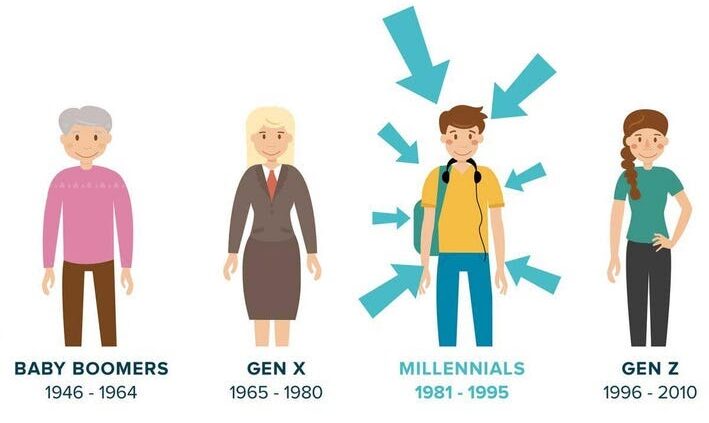Preaching Good News to Millennials
Preaching Good News to Millennials
We explored in previous posts some keys to preaching to the Builder Generation, the Boomers, and Gen X. In this post we move on to learn something about preaching good news to millennials in your congregation.
Who Are The Millennials?
They are people who are born between 1984 and 1998. This is the smallest generation of the five generations that we are considering. They have many generalized characteristics. Here’s a list of what this generation is like:

- They feel “special”. They were raised, often, by helicopter parents, or those who watched their health, their education, their play, carefully.
- Their accomplishments were celebrated, so they felt accomplished.
- Often their heart’s desire was given them. Or, in other words, they were doted on. The result is a sense of entitlement.
- A large proportion of the Millennial generation reacted against the consumerism of their parents, and so they are looking for a deeper meaning to life. This quote from Darrell Hall’s book, Speaking Across Generations puts it this way: The quest for soul satisfaction makes millennials at once more in touch emotionally and more noncommittal vocationally. It is no wonder then why boomer and Gen Xer doorkeepers of industry are put off by what they perceive as entitlement. (p. 80)
- They are very comfortable with technology, because they grew up with it.
- They are anxious. We are going to explore that more in the next paragraph
Good News for Millennials
In 2019 researcher George Barna did a study of people 18 to 35 at the time in 25 different countries. Interestingly, 20% of millennials in the world expressed feelings of anxiety. In the United States it is 30% of the people in this generation who say they are anxious. Here’s how that reasons anxiety break down in the United States (the percentages are similar in other countries):
- 49% are anxious about important decisions;
- 49% are afraid to fail;
- 30% say they aren’t secure in who they are;
- 39% reports that they are sad or depressed;
- 34% feel lonely or isolated;
 They are also anxious about the big issues facing society today. Racism, climate change, healthcare and education seem to be problems without solutions.
They are also anxious about the big issues facing society today. Racism, climate change, healthcare and education seem to be problems without solutions.
The Sovereignty of God is good news for such people. The invitation to cast all our cares on God should ring as good news. The command in Philippians 4 should give hope:
6 Do not be anxious about anything, but in every situation, by prayer and petition, with thanksgiving, present your requests to God. 7 And the peace of God, which transcends all understanding, will guard your hearts and your minds in Christ Jesus.
What Millennials Want in a Message
When asked about what they want the outcomes of a sermon to be, it is almost an equal split between the three things that Darrell Hall offered as choices in Speaking Across Generations.
- 37% wanted to feel a personal connection to God.
- 34% said they wanted application to life.
- 31% said they wanted to understand a passage in greater detail.
Not an easy split to deal with, but one to be aware of as you prepare messages.
Some Reflections
Here are some of the things that I have done as I am preaching good news to millennials in my church.
I’ve learned to include technology in my sermons, including Youtube and material  from websites like “Sermonspice”. I’m fortunate that the church I am working in at present has this capability. Youtube and other websites like Sermonspice offer visuals that are compelling. A note, however. Be aware of copyright issues when you use videos.
from websites like “Sermonspice”. I’m fortunate that the church I am working in at present has this capability. Youtube and other websites like Sermonspice offer visuals that are compelling. A note, however. Be aware of copyright issues when you use videos.
I include some sermons that are investigating in style. In other words, I look at the message much the same way as a detective trying to determine truth by examining it in detail. They liked to be challenged intellectually.
Using stories of people who have faced challenges and overcome with Jesus’ help are also well received by this generation. So, begin preaching hope to millennials in your church.
Here’s another view of how to reach millennials in your preaching through a narrative style of preaching.



